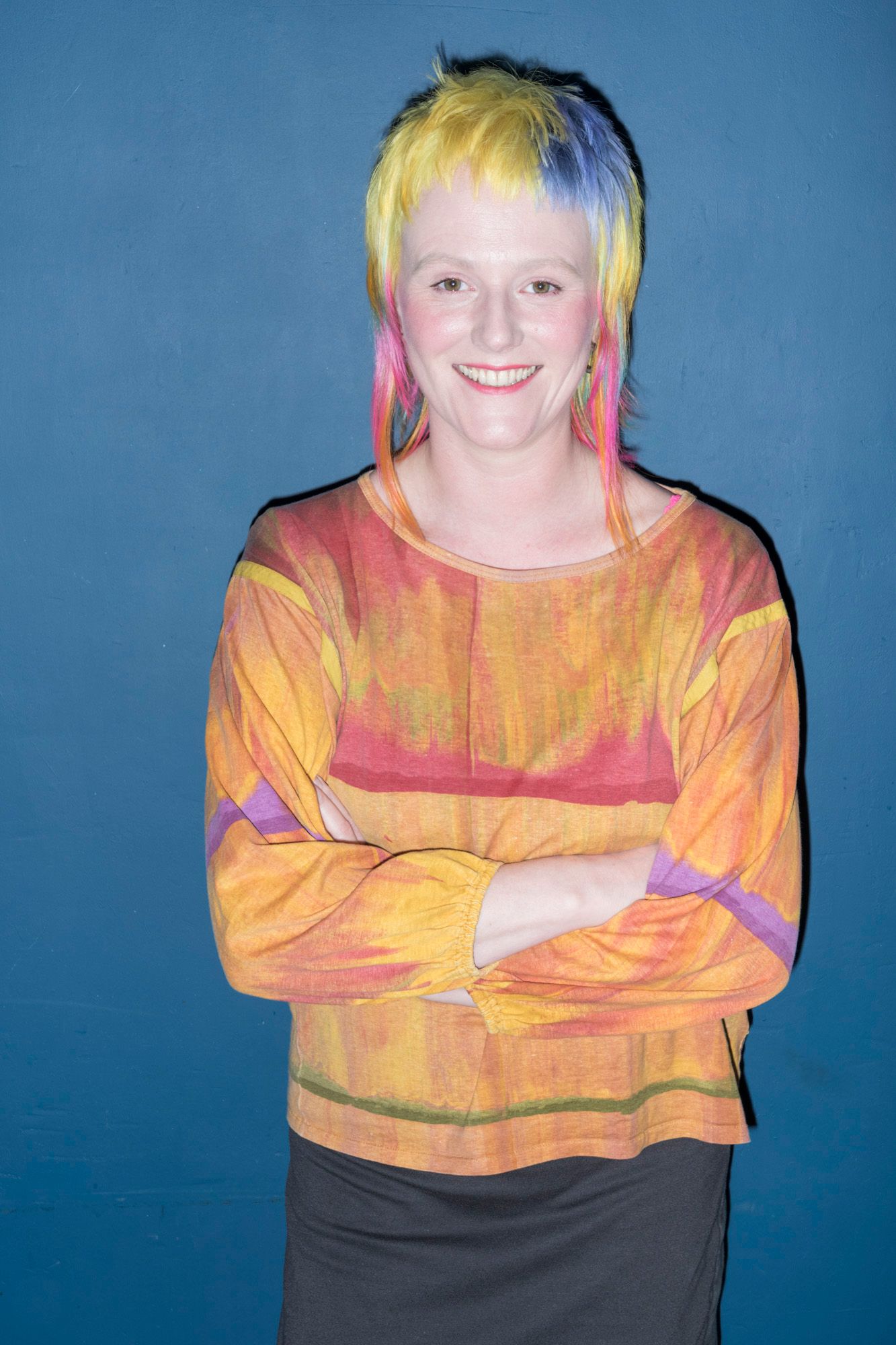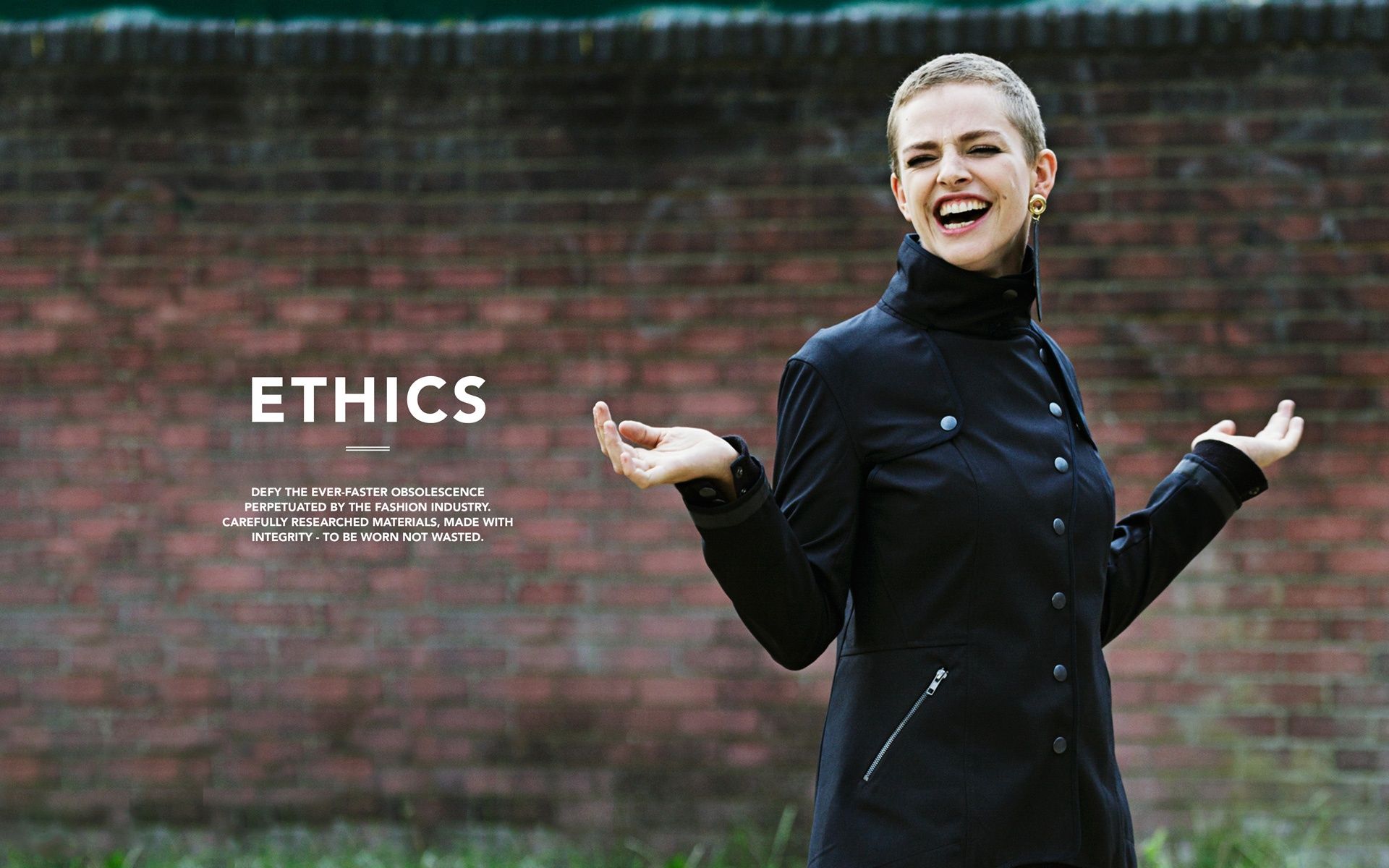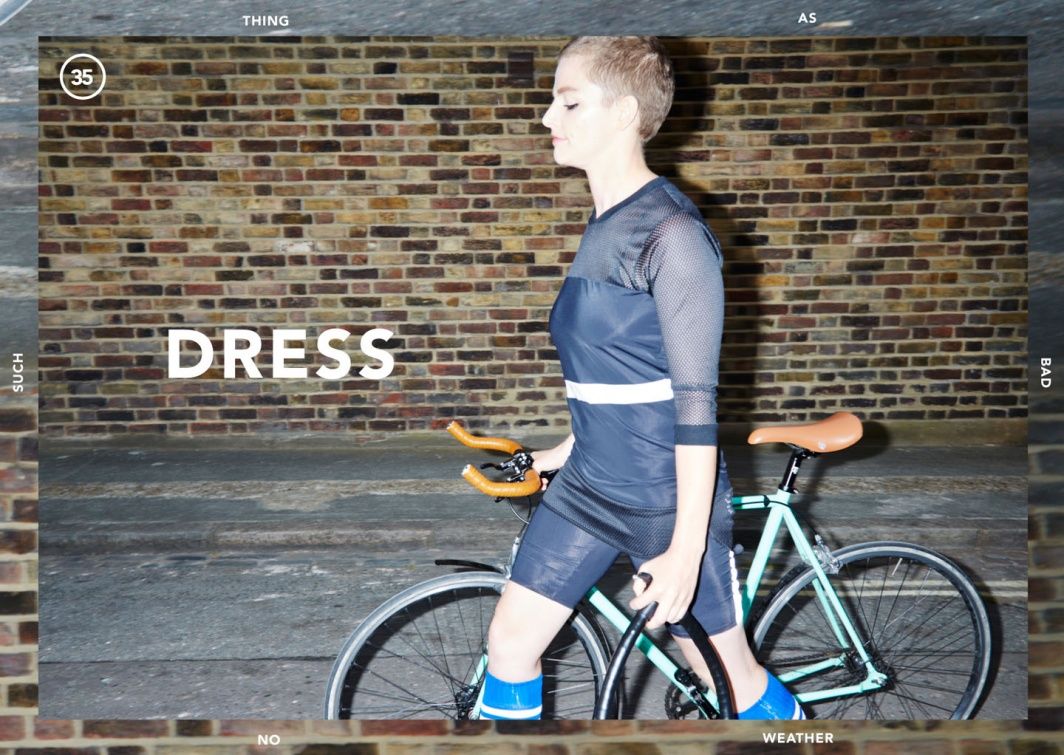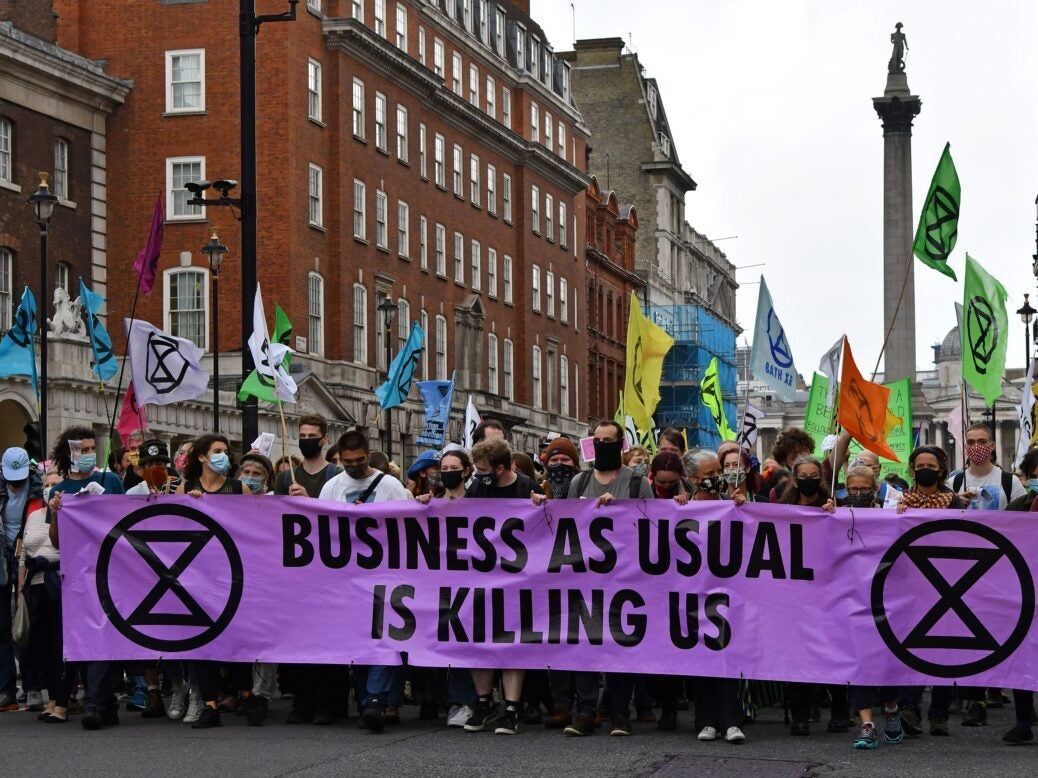Clare Farrell, fashion designer, environmental activist, founder of the Extinction Rebellion movement and the Sustainable Fashion course at the University of the Arts London, is not new to the green trends that have been taking off in the fashion industry. She has been actively involved in the issue for more than 16 years and considers the overused sustainability concept meaningless and outdated.
For the fourth time, the Hungarian Fashion & Design Agency organizes the Budapest Fashion & Tech Summit, a fashion industry conference with international experts. Clare was one of the panel discussion participants on sustainability issues, and we interviewed her on this occasion.

You have dedicated your work to fighting against climate catastrophe both within and beyond the fashion world. How has your path led you in this direction?
I wrote my dissertation on the environmental impact of fashion and textiles back in 2005. I looked at different fibre types and developed a framework of how these materials affect our environment. I chose the topic partly because of the CFC (greenhouse gas) scandal, which was incredibly shocking to me as a young person. I found it very difficult to understand how adults, people in power, in charge of companies, can ignore this crisis when they are well aware that these gases are creating a hole in the ozone layer that can cost many people’s lives.
As a fashion designer, how has your attitude towards fashion and expressing yourself through clothes changed since you have become increasingly aware of the fashion industry’s environmental impact?
I often start my university courses by asking my students what they think about fashion. Most answers are about frustration, disappointment and a kind of love-and-hate relationship. They want to work with clothes, yet they can’t do it in a way that is in line with their values at the moment. Personally, I have always loved to dress and express myself with clothes. I have a deep love for colors, textures and textiles. At the same time, I don’t want to be a part of what the fashion industry represents in that global emergency context. Unless I can help it to stop causing so much harm. Before I started working in the art department of the Extinction Rebellion movement, a friend and I ran a project called Body Politic. We organized workshops where we repaired and decorated existing clothes, which we then used as positive messages and tools of resistance. We did not give anything away for money; we only accepted donations. I felt it was important to completely distance ourselves from the market. The participatory format itself and the workshop space that was created there was about sharing knowledge and skills, and the process gave new meaning to existing things. I then inherited this concept directly into the DNA of Extinction Rebellion. I am very grateful to the friends I worked and brainstormed with during this period. It helped me a lot to completely reevaluate my relationship with fashion.
How would you describe sustainability in your own words?
Sustainability as a term has been co-opted and used disrespectfully, in my opinion. This is a real shame because it is supposed to be about something wonderful, but now it has almost completely lost its meaning. And the idea of real sustainability is very far away from us. Our planet is in an emergency situation, so what we need at the moment are emergency solutions, not sustainability solutions. The industry has known for more than 30 years that it is unsustainable. It had the chance to change, but it hasn’t. If we want to have any hope of anything that looks remotely like sustainability, that relies heavily on government legislation; on the people who have the power to make it legally binding to do much less damage in the process of doing business. Therefore, I get quite concerned about the fashion industry’s tendency towards apolitical, simplistic solutions. I think the idea of circular fashion is attractive to many people because it gives the impression that many things can stay the same as they are now, as long as we recycle stuff. This approach does not look holistically at what is actually happening. Although it seems clean and green, the circular fashion system is still steeped in human rights abuses and slave labor, which I think is often left out of this conversation. We also need to understand that the way the industry operates is deeply rooted in colonial history, and thus, a massive amount of reparation is required, which is also very far from the current sustainability agenda.
You have your own eco-friendly brand (No such thing) and teach sustainable fashion at the University Art of London. What defines a truly sustainable brand, in your opinion?
Most brands would be sustainable if they closed down and joined the resistance instead. (laughs) But what we must recognize as designers, or as professionals working in the creative industries and media, is that we have the privilege of having an impact on how people live, think and behave. So we have to ask ourselves what exactly the impact is. Does it help make our world a better place? If the answer is no, then we really should stop what we are doing. Suppose a brand is serious about having a planet to operate on in the future. In that case, it needs to radically rethink what it is doing, whether it really needs to be doing it, and whether it can accept that the fashion industry urgently needs to shrink. The great myth of consumer capitalism is that rational people have needs and wants that can only be met by constantly new products. Why would we have an advertising industry at all if this were true? If we were serious about tackling the climate crisis, the advertising industry would be one of the first to be significantly downsized. I really liked the comment made by Jonathan Porat, a British environmentalist, who recently said that if you are in the fashion industry and you care about the environment, you should demand legislation against your own industry. The law has to level the playing field because we will not see any significant change as long as this continues.
I created No Such Thing (cycling clothing for women) as a trans-seasonal clothing collection, which I treated as a product design project rather than a fashion project. I didn’t want to create stocks and new collections. I was conscious about the choice of materials and production, but I was also aware that it would help me as a woman to be able to cycle more often to places where I wouldn’t necessarily want to wear a bright yellow cycling jacket. In that sense, it was not just a product design experiment that solved a wardrobe problem but also helped me make a sustainable lifestyle choice.


How do you spend a working day?
Keeping up-to-date and educating myself as much as possible. A big part of my day is team coordination, trying to help the Extinction Rebellion participants who are under a lot of pressure. We have a lot of people who are volunteering lots of people who quit their jobs, people facing jail sentences. It’s emotionally demanding work, requiring a huge effort from everyone involved. The rest of my days are spent coming up with ideas and developing narratives and messages that support the work of the movement. I also participate in panel discussions and speak at lectures, which I also spend a lot of time preparing for. No two weeks are the same.
As one of the founders of Extinction Rebellion what has been your greatest achievement with the movement?
I can still relate to that feeling from the early days when I would walk up to a bridge or road junction where we were preparing for something and see that more than ten people had gathered. I am very proud of the way it has grown since then. I think we’ve had a big impact on public understanding of the climate crisis and, in a way, the political reality of the UK. If we have not been able to make a big difference in practice, we have certainly made a difference at the level of discourse. That is probably my greatest achievement, that I have been able to play a part in setting something in motion that has helped to put the environment at the center of political concerns in the UK, which is impossible to ignore any longer.

Join and donate for a good cause!

Favorite interiors of the week_88










